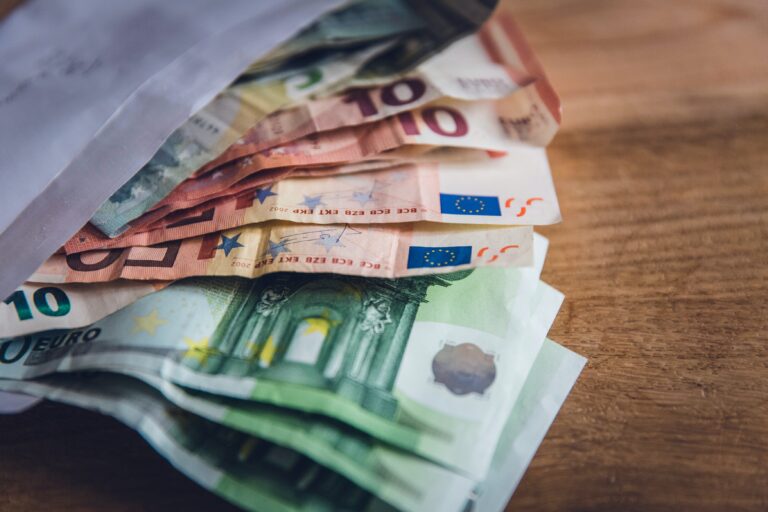
Safe Haven Currencies
Safe Haven Currencies are an imperative, yet complicated, business. Rising in value and price in the face of Geopolitical and general uncertainty and risk, their trend often defies not only other asset trends but also logic. In this article, we analyse known havens and the possible causes for their existence.
US Dollar
The US Dollar is not a safehaven. That may come as a surprise because one could make a strong argument for its stability as the most liquid and heavily traded currency in the world. This characteristic, in fact, is confusingly why it is not a safehaven. The liquidity and stability of the US Dollar in good times is one of the reasons why it is the world’s major conduit for business. Companies and corporations over the world flock to the consistent purchasing power of the Dollar, supported by an immense population underneath it.
This corporate and financial exposure of the US Dollar is why it is not a safehaven. When times are bad, i.e. when global geopolitical risk is mounting and looking unsustainable, it is these institutions that investors and stakeholders wish to minimise their exposure to. Therefore, there is a de facto exodus from the dollar, flooding market supply which, when met by low demand, allows the price of the Dollar to fall.
Despite lacking the status of a safehaven, the US Dollar is unequivocally stable and, unsurprisingly, a popular currency amongst the expatriate community. With the Dollar consolidating considerable value over the past few weeks, many analysts see little reason for this trend to reverse into 2018.
Japanese Yen
The election is dominating the political economy of Japan at the moment. Before this weekend’s event, most immediate fluctuations in the value of the Japanese Yen are likely, although not certain, to be derived from the leadership contest. However, with crises of industry affecting wider Japanese markets, the supremacy of the election to the Yen cannot be guaranteed.
Critically, also, the Yen is a fully fledged safehaven currency. Therefore, whilst the domestic environment will be reflected in the value of the Yen, the global geopolitical atmosphere has the propensity to make the Japanese currency highly volatile. As a central safehaven asset, alongside the Swiss Franc and Gold, its price is proven to vary inversely with other non-safehaven currencies.
Therefore, whilst the value of the Yen may, at times, be uncertain, it can usually be considered overpriced in globally bad times and under- or fairly priced during good times. The rising tension within the Koran Peninsula creates an interesting new dynamic within Japan and the Yen. Whilst the value of the Yen should rise during times of geopolitical uncertainty and insecurity, its geographical proximity to the epicentre of the troubles makes its relevance as a safehaven against North Korea questionable.
Swiss Franc
For almost 100 years, the Swiss Franc has acted as a safehaven currency. A politically and socially stable country, Switzerland is also a quintessentially neutral player on the international stage. Known for its strong and entrenched financial system, confidential banking and low inflation rates, it is considered by many to be one of the most stable currencies in the world. Although these are some of the most likely reasons why the Swiss Franc is a safehaven currency, the nature of a safehaven currency means one cannot know for certain.
What we do know is that investors flock to the Swiss Franc when geopolitical or natural challenges arise. Bucking the trend, when all other currencies seem to be shedding value, the Swiss Franc appreciates. The Swiss Franc is essentially a disaster fund, so whilst you may not protect yourself against inflation and loss in good times, you can be confident that the Franc will stay strong.
Related Insights

Daily Brief – A weaker Dollar: Trump vs. Powell
A weaker Dollar: Trump vs. Powell The Dollar continued to lose ground yesterday as the truce between Israel and Iran appeared to continue to hold. There has been a noticeable return to focus upon macro and monetary influences in major currency pairs. Yesterday, Fed Chair Jay Powell provided his semi-annual monetary policy report before the […]

Daily Brief – Big Girls Don’t Cry
Big Girls Don’t Cry A bond market tantrum and one of the sharpest one day sell offs in Sterling for several years appear to have been catalysed by the Chancellor’s appearance in PMQs yesterday. First: the back story. This Labour government has faced some embarrassment in recent weeks trying to get its welfare bill through […]

Daily Brief – Next level
Next level EURUSD has managed a relatively smooth ascent to its current levels, around 1.18. That is despite significant resistance levels, most notably around 1.17. A large collection of option strike prices gathered around this key level and the price history of the pair shows us its significance. Sustained closes above this level since last […]


 Charles Porter
Charles Porter